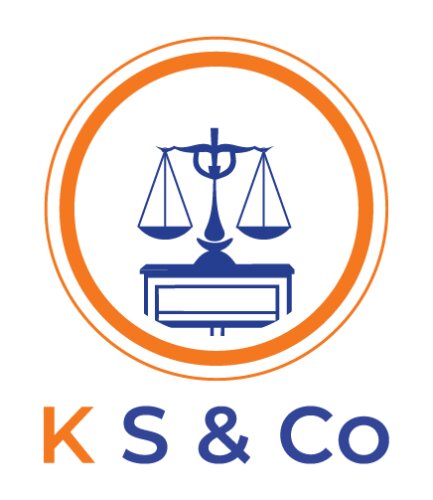Best E-commerce & Internet Law Lawyers in Mumbai
Share your needs with us, get contacted by law firms.
Free. Takes 2 min.
List of the best lawyers in Mumbai, India
About E-commerce & Internet Law in Mumbai, India
E-commerce & Internet Law in Mumbai is an evolving area of legal practice that addresses the legal aspects of online business activities. This includes online transactions, data protection, privacy concerns, intellectual property rights, consumer protection, cybersecurity, and issues surrounding digital commerce platforms. As Mumbai is a financial hub, the city witnesses a significant amount of e-commerce and online activity, making the understanding of related legal frameworks crucial for businesses and consumers alike. The legal landscape here is influenced by national laws such as the Information Technology Act, 2000, as well as emerging regulations on data protection and e-commerce policies.
Why You May Need a Lawyer
There are numerous scenarios in which an individual or business may need legal assistance in the realm of E-commerce & Internet Law:
- Setting up an online business and ensuring compliance with e-commerce regulations.
- Addressing consumer complaints and disputes arising from online transactions.
- Navigating issues related to intellectual property infringement or trademark disputes in the digital space.
- Dealing with cybersecurity incidents, such as data breaches or hacking attempts.
- Ensuring compliance with data protection laws and safeguarding user privacy.
- Drafting and reviewing contracts, terms of service, and privacy policies for online platforms.
- Handling issues related to digital content ownership and licensing.
Local Laws Overview
Mumbai is governed by Indian federal laws concerning e-commerce and the internet. Key legislation includes:
- The Information Technology Act, 2000: This acts as the cornerstone for internet law in India, dealing with issues such as electronic contracts, digital signatures, and cybercrimes.
- The Consumer Protection (E-commerce) Rules, 2020: These rules prescribe duties for e-commerce entities to protect consumer interests and address disputes.
- Data Protection Laws: While a comprehensive data protection bill is yet to be fully enacted, businesses must ensure the confidentiality and security of consumer data under existing laws and guidelines issued by various regulatory bodies.
- Intellectual Property Laws: These are crucial for businesses to protect their digital content, trademarks, and patents in the online space.
Frequently Asked Questions
What legal compliances are required for starting an e-commerce business in Mumbai?
You need to adhere to various legal requirements, including the establishment of a legal entity, GST registration, adherence to the Information Technology Act, consumer protection laws, and data security compliances.
How do consumer protection laws apply to e-commerce transactions?
Consumer protection laws protect the rights of consumers against unfair trade practices, deficient services, and defective products, and ensure that e-commerce businesses comply with these standards.
What steps should be taken in the event of a data breach?
Notify affected parties and authorities, engage cybersecurity experts, assess the extent of the breach, and take remedial measures to prevent future incidents while complying with legal obligations.
Can I register a trademark for my online business?
Yes, you can register a trademark for your online business under the Trademarks Act, 1999, to protect your brand identity legally.
What are the regulations regarding online advertising?
Online advertisements must be truthful, not mislead consumers, and comply with the guidelines outlined by the Advertising Standards Council of India and other relevant bodies.
How does GDPR affect e-commerce in India?
While GDPR is a European regulation, Indian businesses dealing with EU citizens' data must comply with its provisions regarding data processing and protection.
What constitutes an unfair trade practice in e-commerce?
Practices such as deceptive advertising, false representation of goods, and breach of terms and conditions can be deemed unfair trade practices.
Can digital contracts be legally binding?
Yes, digital contracts are legally binding in India, provided they meet the necessary legal criteria for enforceability under contract law.
What measures should an e-commerce platform take to protect customer data?
E-commerce platforms should implement robust data encryption, access controls, regular security audits, and clear privacy policies to protect customer data.
Is it necessary to have a privacy policy for my e-commerce website?
Yes, having a privacy policy is essential to inform users about data collection practices and ensure compliance with data protection regulations.
Additional Resources
Here are some helpful resources and organizations related to E-commerce & Internet Law in Mumbai:
- Information Technology Law Handbook: Comprehensive guides on the IT Act and related legal materials.
- The Internet and Mobile Association of India (IAMAI): An industry body representing various aspects of the online industry, offering regulatory updates and guidance.
- Data Security Council of India (DSCI): Focuses on cybersecurity and data protection resources in India.
- Consumer Helpline: A government initiative to help consumers with grievances related to e-commerce platforms.
Next Steps
If you're seeking legal assistance in E-commerce & Internet Law, consider the following steps:
- Identify specific legal concerns you face or anticipate in your e-commerce activities.
- Research and reach out to law firms in Mumbai that specialize in E-commerce & Internet Law.
- Book a consultation to discuss your issues and understand potential legal strategies.
- Gather all relevant documents, communications, and evidence related to your case or query before meeting with legal counsel.
- Stay informed about ongoing changes in digital commerce regulations to ensure ongoing compliance with the law.
Lawzana helps you find the best lawyers and law firms in Mumbai through a curated and pre-screened list of qualified legal professionals. Our platform offers rankings and detailed profiles of attorneys and law firms, allowing you to compare based on practice areas, including E-commerce & Internet Law, experience, and client feedback.
Each profile includes a description of the firm's areas of practice, client reviews, team members and partners, year of establishment, spoken languages, office locations, contact information, social media presence, and any published articles or resources. Most firms on our platform speak English and are experienced in both local and international legal matters.
Get a quote from top-rated law firms in Mumbai, India — quickly, securely, and without unnecessary hassle.
Disclaimer:
The information provided on this page is for general informational purposes only and does not constitute legal advice. While we strive to ensure the accuracy and relevance of the content, legal information may change over time, and interpretations of the law can vary. You should always consult with a qualified legal professional for advice specific to your situation.
We disclaim all liability for actions taken or not taken based on the content of this page. If you believe any information is incorrect or outdated, please contact us, and we will review and update it where appropriate.

















